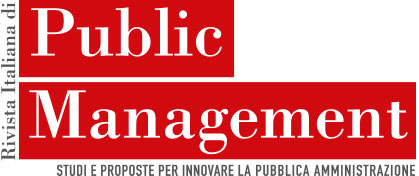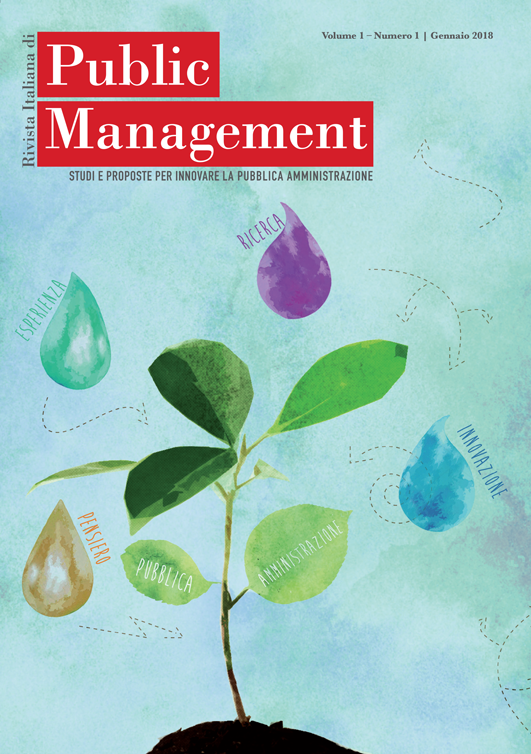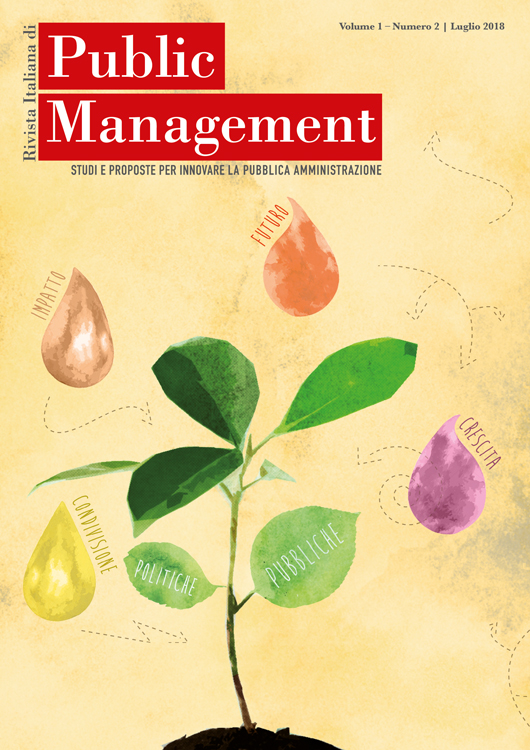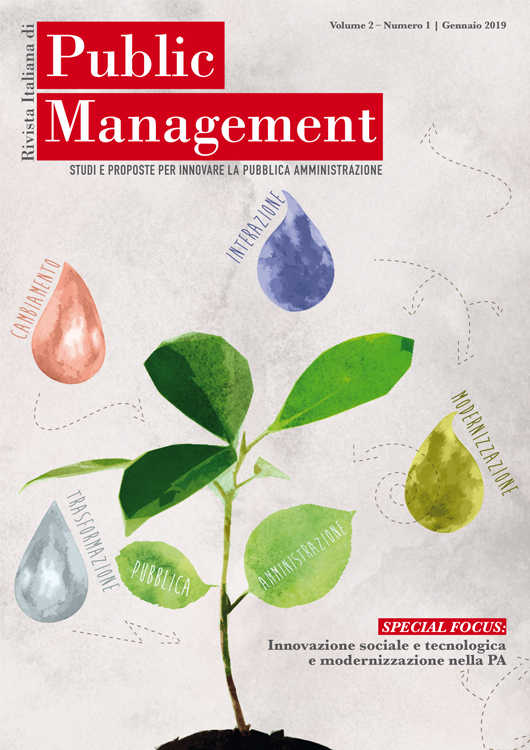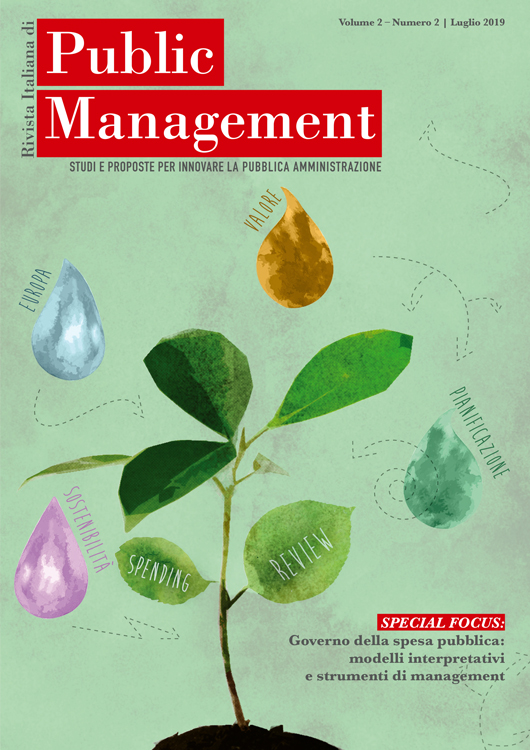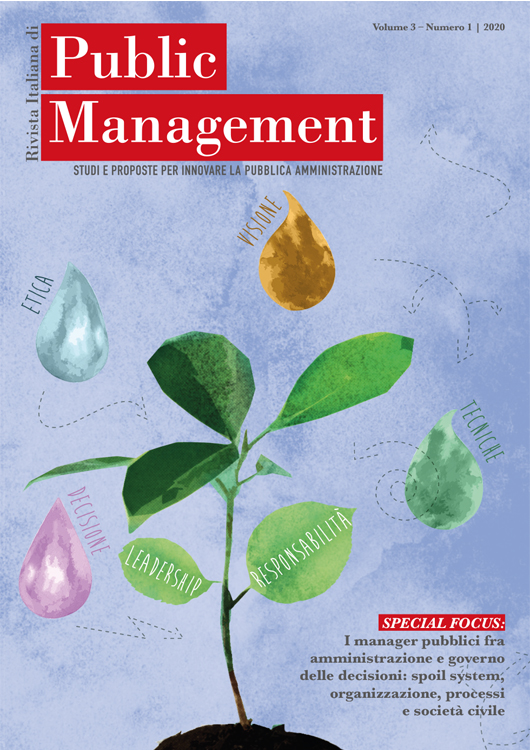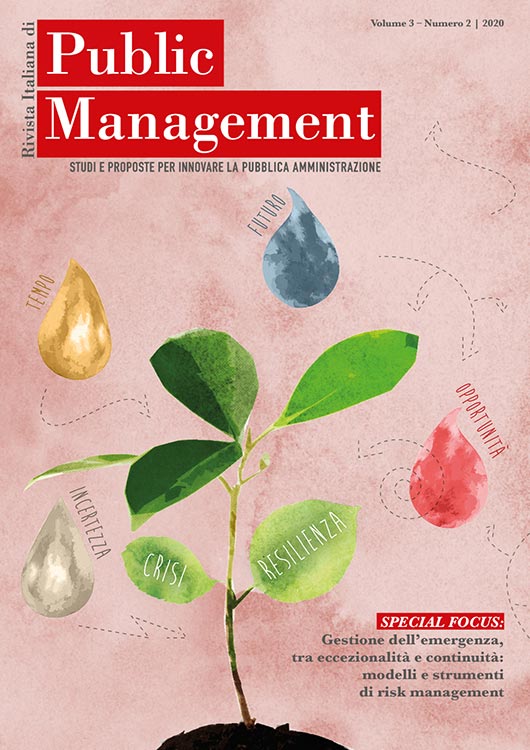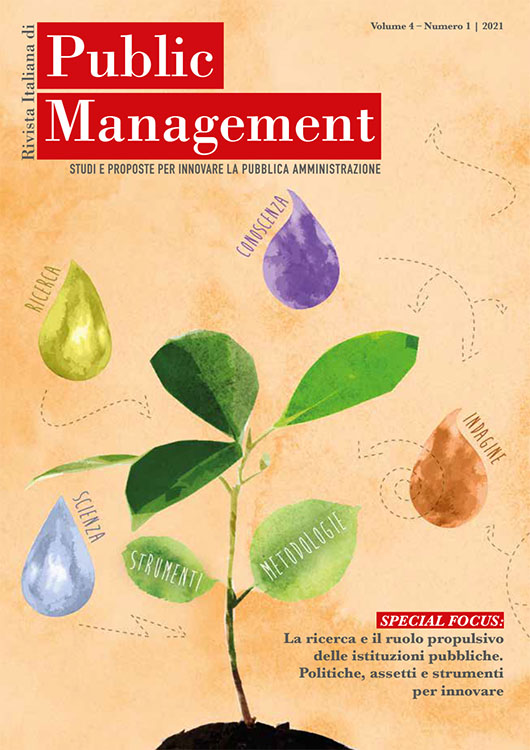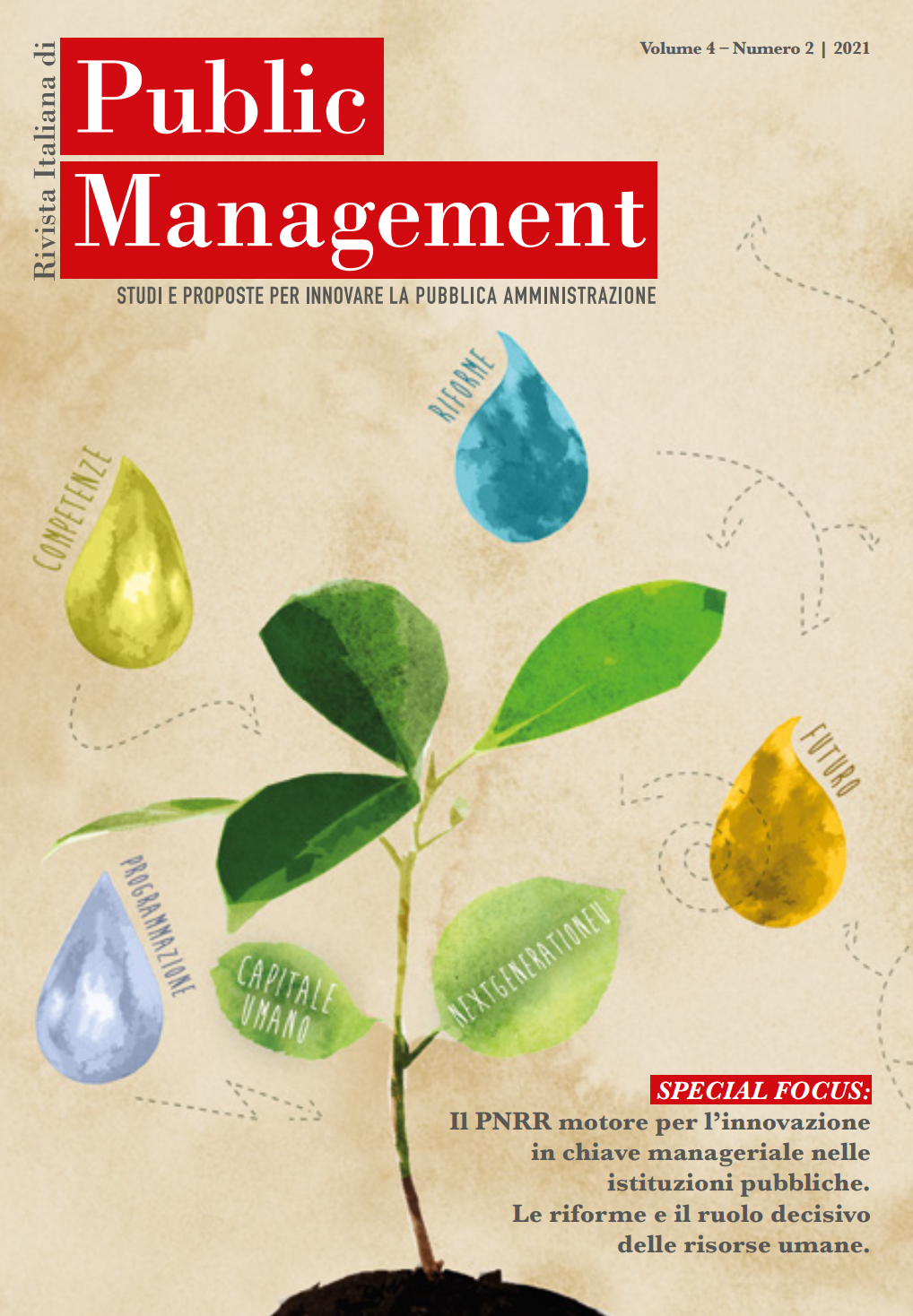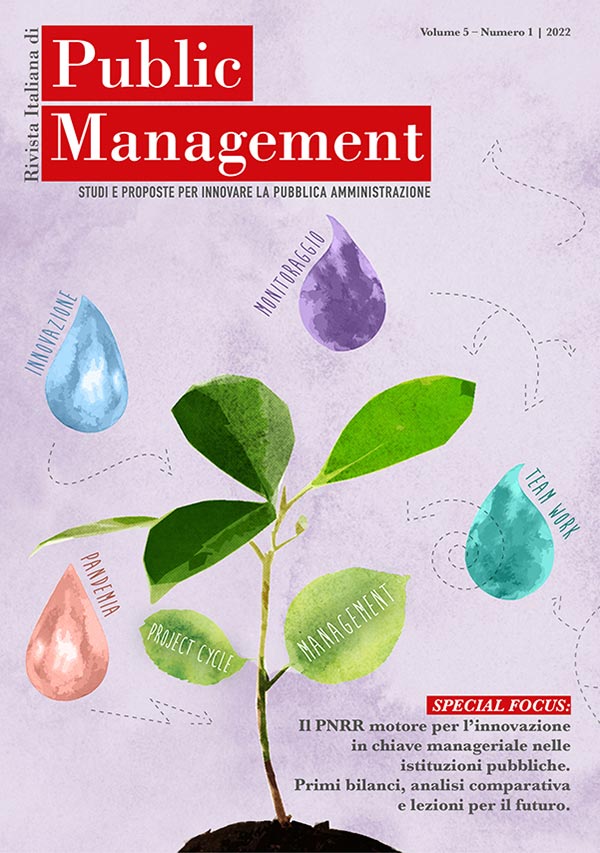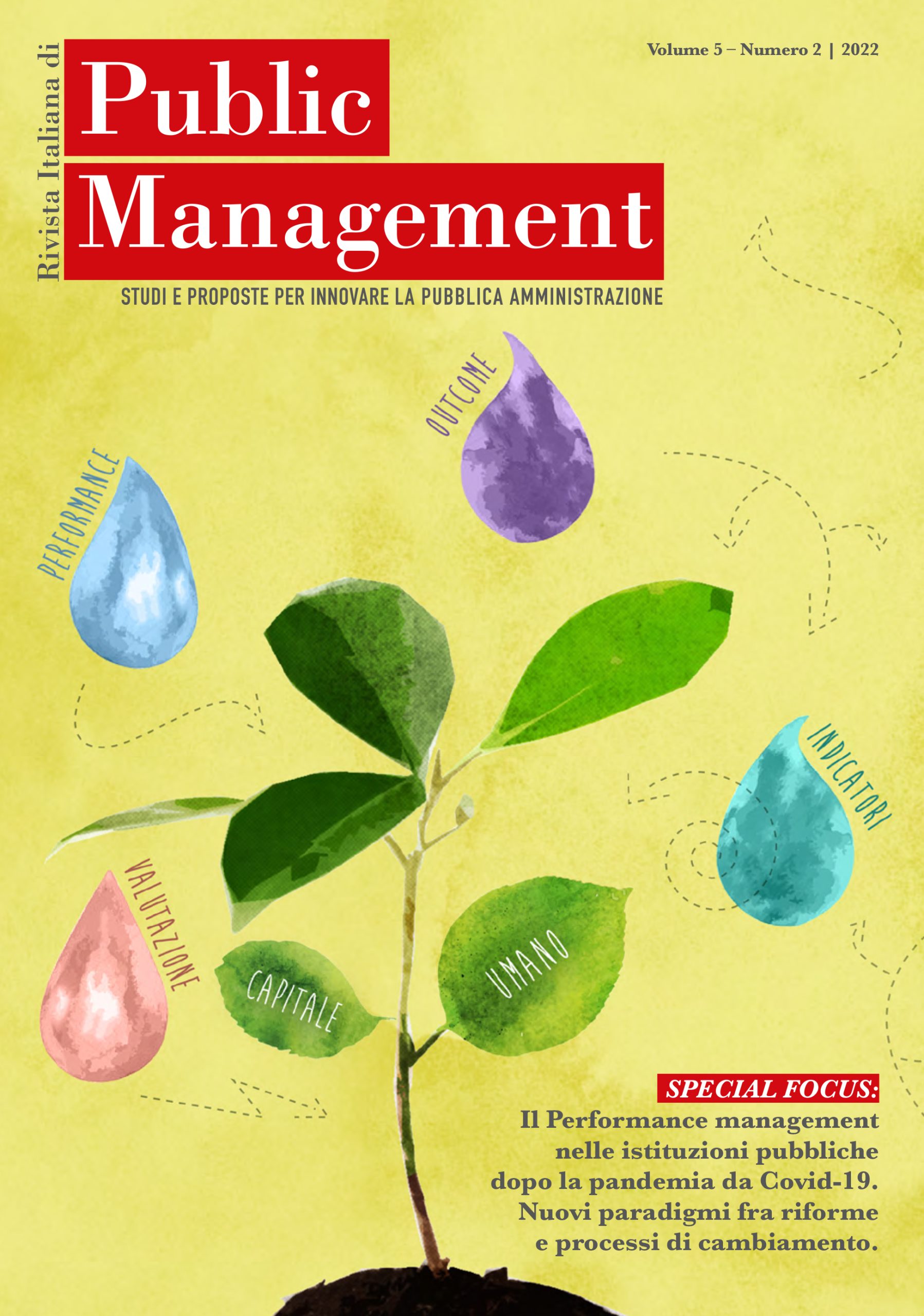All the papers published on the Rivista Italiana di Public Management are registered with DOI (Digital Object Identifier) and Crossref, the standard that allows the persistent identification of any form of intellectual property online.
Rivista Italiana di Public Management - Studi e Proposte per Innovare la Pubblica Amministrazione came into being with the aim to disseminate a result- and assessment-oriented managerial culture to aid the processes of institutional and administrative reforms. It was created as a review that thinks globally and that looks to good practices and use cases in Italy and abroad, while linking academia and public institutions; a scientific journal with an approach attentive to potential scenarios, that, starting from cases, is able to deal with the critical issues of public administrations in the current historical phase, in a setting of profound and innovative social, cultural, and technological change.
The ambition is to see the involvement of scholars, managers and experts interested in public management, legal experts, economists, historians, sociologists, psychologists, political scientists, and scholars in other disciplines, as they grapple with the problems using a multidisciplinary approach. Governments and all the public institutions play a key role in different countries, and are among the most complex organizational structures. Building a scientific tool for promoting and spreading an innovative and challenging management culture is no simple, but it as a goal to be worked towards, in the public interest.
The journal is organized in several sections, each responding to the desire to investigate developments of thought, modelling, and case analyses, focusing attention on public institutions and the relations they have with the market -business government relations-, non-profit organizations, stakeholders, and society at large. Public institutions are viewed from various perspectives – the connecting thread being the multidisciplinary approach of the kind typical of public management – and using different instruments. The journal’s design comprises three sections:
- Special Focus, in which an issue considered current, liable to spur reflection, and capable of creating debate is selected and analysed from time to time;
- Dialogues, including a Permanent Open Call that aims to offer a favourable arena for dialogue on the public management issues, with innovative proposals capable of offering tools of dialogue and analysis;
- Close-up, an open window on publishing and research developments in the study of the public sector. While its thematic perspective is broad, it is also the place where special Calls for Papers appear, when RIPM collaborates with other institutions and all the initiatives of RIPM’s reference community in terms of both case studies and major projects and activities.
